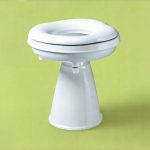Constipation, a frustratingly common ailment, manifests in many ways – from infrequent bowel movements to straining and discomfort. While often linked to low fiber intake or dehydration, a less discussed but significant contributor is insufficient dietary fat. This isn’t about the type of fat (though that matters for overall health), but rather quantity. Fat plays a crucial role in lubricating the digestive tract, softening stool, and stimulating peristalsis – the wave-like muscle contractions that move waste through the intestines. When fat intake drops too low, stools can become hard, dry, and difficult to pass, leading to constipation or exacerbating existing issues. This article will delve into this often overlooked connection, exploring why it happens, how to identify if limited fat is a contributing factor, and strategies for addressing it without resorting to drastic dietary changes.
The modern emphasis on low-fat diets, initially promoted as a health measure, has inadvertently contributed to this problem for many individuals. While reducing excess saturated and trans fats is beneficial, eliminating healthy fats entirely can disrupt the natural digestive process. It’s important to remember that fat isn’t the enemy; it’s essential for nutrient absorption, hormone production, and overall well-being. When we drastically reduce fat intake, even if we maintain adequate fiber and hydration, the lack of lubrication within the intestines can significantly impact stool consistency. This is particularly true for individuals already prone to constipation or those with sensitive digestive systems. Understanding this nuance allows for a more balanced and effective approach to dietary management. It’s also worth considering whether can bloating be caused by other factors as well.
The Role of Fat in Digestive Health
Fat’s contribution to healthy digestion extends beyond simple lubrication. It’s intimately involved in several key processes that impact stool formation and bowel regularity. Firstly, bile, produced by the liver and stored in the gallbladder, is essential for fat digestion and absorption. When we consume dietary fat, it triggers the release of bile into the small intestine, which emulsifies fats, breaking them down into smaller droplets for easier absorption. This process also stimulates peristalsis – that crucial wave-like movement propelling waste along the digestive tract. Secondly, certain fatty acids themselves have lubricating properties, further softening stool and facilitating smooth passage. Finally, fat aids in the absorption of fat-soluble vitamins (A, D, E, and K), which are vital for overall health and can also indirectly impact digestive function.
A diet severely restricted in fats can lead to a decreased production of bile over time, further hindering digestion and potentially worsening constipation. This isn’t an immediate effect; it’s more of a gradual decline. It’s important to note that the type of fat matters here too. While excessive saturated and trans fats are detrimental, healthy unsaturated fats (like those found in avocados, nuts, seeds, and olive oil) are vital for optimal digestive health and overall well-being. If you experience frequent discomfort, can acid reflux be caused by other factors too?
The misconception often lies in equating “fat” with unhealthy. A balanced diet includes adequate amounts of healthy fats – not an elimination of them entirely. The goal should be to prioritize quality over quantity, focusing on unsaturated sources while limiting those known to have negative health effects when consumed in excess.
Identifying Fat Intake as a Contributing Factor
Determining whether limited fat intake is causing hard stools requires a bit of self-assessment and potentially some dietary tracking. Begin by honestly evaluating your current diet. Do you actively avoid fats, choosing lean options exclusively? Have you recently adopted a very low-fat or plant-based diet without careful consideration for adequate fat sources? Are your meals consistently lacking in foods naturally rich in healthy fats like avocados, nuts, seeds, and oily fish? If you answer yes to any of these questions, it’s worth exploring whether insufficient fat intake could be playing a role.
Beyond dietary history, pay attention to the characteristics of your stools. Are they consistently hard, dry, and difficult to pass? Do you experience straining during bowel movements? Are you feeling incomplete evacuation even after going to the bathroom? These are all indicators that suggest a problem with stool consistency and potentially insufficient lubrication within the digestive tract. It’s also important to rule out other common causes of constipation, such as inadequate fiber intake, dehydration, lack of physical activity, or underlying medical conditions. If nausea accompanies these symptoms, can frequent nausea be caused by other digestive issues?
- Consider keeping a food diary for a few days to track your fat intake specifically. Many apps can help with this.
- Look at the overall composition of your diet: Is it overly reliant on processed foods and refined carbohydrates? These often lack sufficient healthy fats.
- Think about any recent dietary changes you’ve made – even seemingly small ones could be contributing.
If you’ve addressed other common causes of constipation (fiber, hydration, exercise) without improvement, then insufficient fat intake should definitely be investigated as a potential culprit. However, always consult with a healthcare professional to rule out any underlying medical concerns before making significant changes to your diet. To further support overall digestive health, tips for reducing fat intake can be helpful too.
Addressing Low Fat Intake: Practical Strategies
If you suspect that limited fat intake is contributing to hard stools, the good news is that it’s often relatively easy to address. The key isn’t necessarily adding large amounts of fat, but rather incorporating adequate amounts of healthy fats into your daily diet. Start small and gradually increase your intake, paying attention to how your body responds.
One simple strategy is to consciously include a source of healthy fat with each meal. This could be:
1. Adding a tablespoon of olive oil to your salad or vegetables.
2. Snacking on a handful of nuts or seeds throughout the day.
3. Incorporating avocado into your breakfast toast or smoothie.
4. Choosing fatty fish (salmon, mackerel, sardines) at least twice a week.
Don’t fall into the trap of fearing healthy fats! They are essential for overall health and play a vital role in digestive function. Focus on unsaturated sources like avocados, nuts, seeds, olive oil, and fatty fish – these provide numerous health benefits beyond just lubricating the digestive tract. If you experience throat burning caused by dietary changes, seek professional guidance.
The Importance of Gradual Changes
Making drastic dietary changes can often backfire, leading to digestive upset and discomfort. When increasing your fat intake, it’s crucial to do so gradually. Suddenly adding a large amount of fat to your diet can overwhelm your digestive system, potentially causing bloating, gas, or even diarrhea. Start with small increments – for example, add half an avocado to your lunch instead of a whole one.
Pay attention to how your body responds and adjust accordingly. If you experience any discomfort, reduce the amount of fat you’re adding and try again later. Remember that everyone’s digestive system is different, so what works for one person may not work for another. The goal is to find a balance that allows you to enjoy a healthy and comfortable digestive process. Consistency is also key – aim for regular inclusion of healthy fats in your diet rather than sporadic large doses.
When To Seek Professional Advice
While often manageable with dietary adjustments, persistent constipation or hard stools can sometimes indicate an underlying medical condition. If your symptoms are severe, don’t improve with lifestyle changes, or are accompanied by other concerning symptoms (such as rectal bleeding, abdominal pain, or unexplained weight loss), it’s essential to consult a healthcare professional.
They can help rule out any underlying medical causes of constipation, such as irritable bowel syndrome (IBS), inflammatory bowel disease (IBD), or thyroid disorders. They can also provide personalized recommendations for dietary and lifestyle changes based on your individual needs and health status. Do not attempt to self-diagnose or treat persistent digestive issues without professional guidance. Remember that this article is intended for informational purposes only and should not be considered medical advice. A qualified healthcare provider is the best resource for addressing any health concerns you may have. Recognizing liver problems caused by dietary factors is also important to consider when making changes.


















